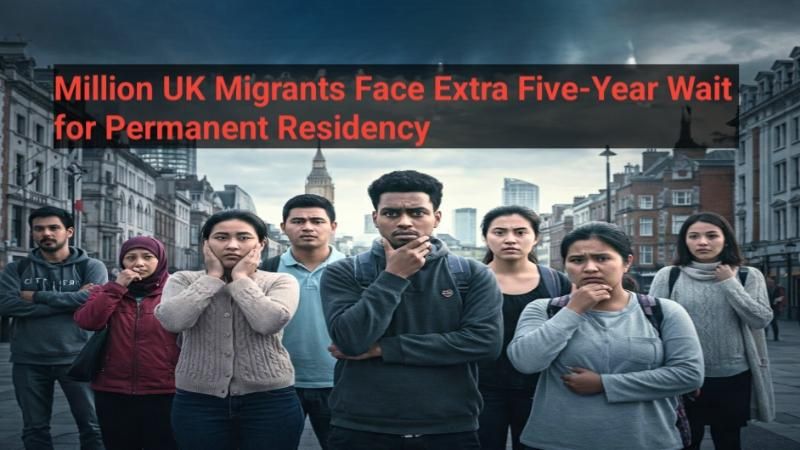Over a million migrant workers currently residing in the United Kingdom could face a significant upheaval in their plans for permanent settlement, potentially being forced to wait an additional five years for the right to remain indefinitely. This development arises from a major review of immigration rules initiated by the Home Office, casting a shadow of uncertainty over the futures of those who have built their lives in Britain since 2020, Daily Dazzling Dawn understand.
The review, the first concrete indication of how Labour's recently published immigration reforms will impact those already in the country, rather than solely future arrivals, has sparked considerable anxiety. Government sources revealed that the criteria for foreign workers who have been granted visas since January 2020 are under scrutiny, stating a need to ensure that the number of individuals becoming eligible for permanent residency "isn’t booming out of control."
Under the existing regulations, most foreign workers become eligible to apply for Indefinite Leave to Remain (ILR) after five years of continuous lawful residence. However, the ongoing review is considering extending this qualifying period to a full decade for some or potentially all of these individuals.
Official Home Office figures indicate that approximately 1.5 million foreign workers were granted visas between January 2020 and December 2024. While the exact number of those who remain in the UK is not publicly available, the potential extension of the ILR waiting time could affect a substantial portion of this cohort.
The implications of this review were brought sharply into focus during a grilling of Home Secretary Yvette Cooper in the House of Commons. Labour MP Florence Eshalomi voiced the deep concerns of her constituents, many of whom are "understandably worried about where this uncertainty leaves them" and fear for their "future plans." One constituent even expressed considering leaving the UK altogether, their settled status feeling "in jeopardy." Ms. Eshalomi pressed the Home Secretary to clarify whether the policy would apply to those already living and working in the UK or solely to new visa applicants.
In response, Ms. Cooper stated that "further details of the earned settlement and citizenship reforms" would be set out later this year, following consultation. While assuring that there would be "plenty of opportunity for people to comment on and consider the detail," she emphasized the importance of extending the principles of contribution and the points-based system to these reforms. Notably, she did confirm that the current five-year route would be maintained for those who arrived on dependent or family visas, aiming to preserve family unity.
The prospect of an extended wait for permanent residency is causing significant distress among migrant communities. Newly arrived immigrants, including those from BAME backgrounds, India, Pakistan, Nepal, Sri Lanka, Bangladesh, and African countries, who have invested considerable sums in visa applications, relocation, and building their lives in the UK, now face prolonged uncertainty. The emotional toll of potentially delaying their settled status by five years is immense, impacting their long-term planning and sense of belonging.
Furthermore, many of these individuals are tied to specific employers through their work visas. If a company's sponsorship is revoked, they face the stressful and expensive process of finding a new sponsor within a limited timeframe to maintain their legal status and continue their journey towards permanent residency. The added burden of a potential ten-year wait for ILR amplifies the precariousness of their situation.
Separately, the Royal College of Nursing (RCN) has strongly advocated for more favorable terms for foreign nurses, recognizing their vital contributions to the healthcare system. Professor Nicola Ranger, RCN general secretary, called for indefinite leave to remain to be extended to "all nursing staff without delay," highlighting the need to provide security and stability for these essential workers.
The ongoing review of permanent residency rules has the potential to reshape the lives of over a million migrants in the UK, creating prolonged uncertainty, financial strain, and emotional distress across diverse communities who have contributed significantly to British society and its economy since 2020.








.svg)


.jpg)
